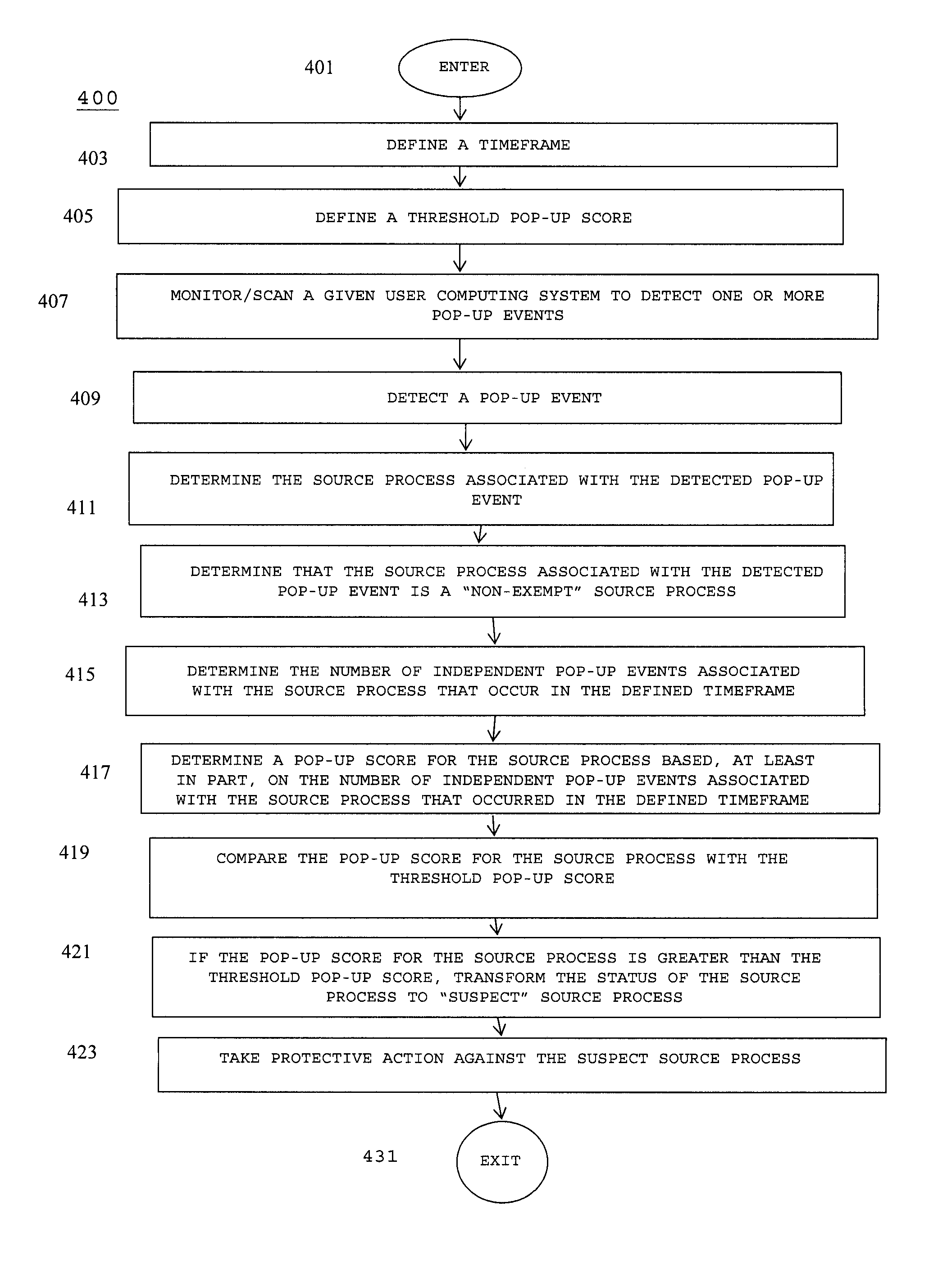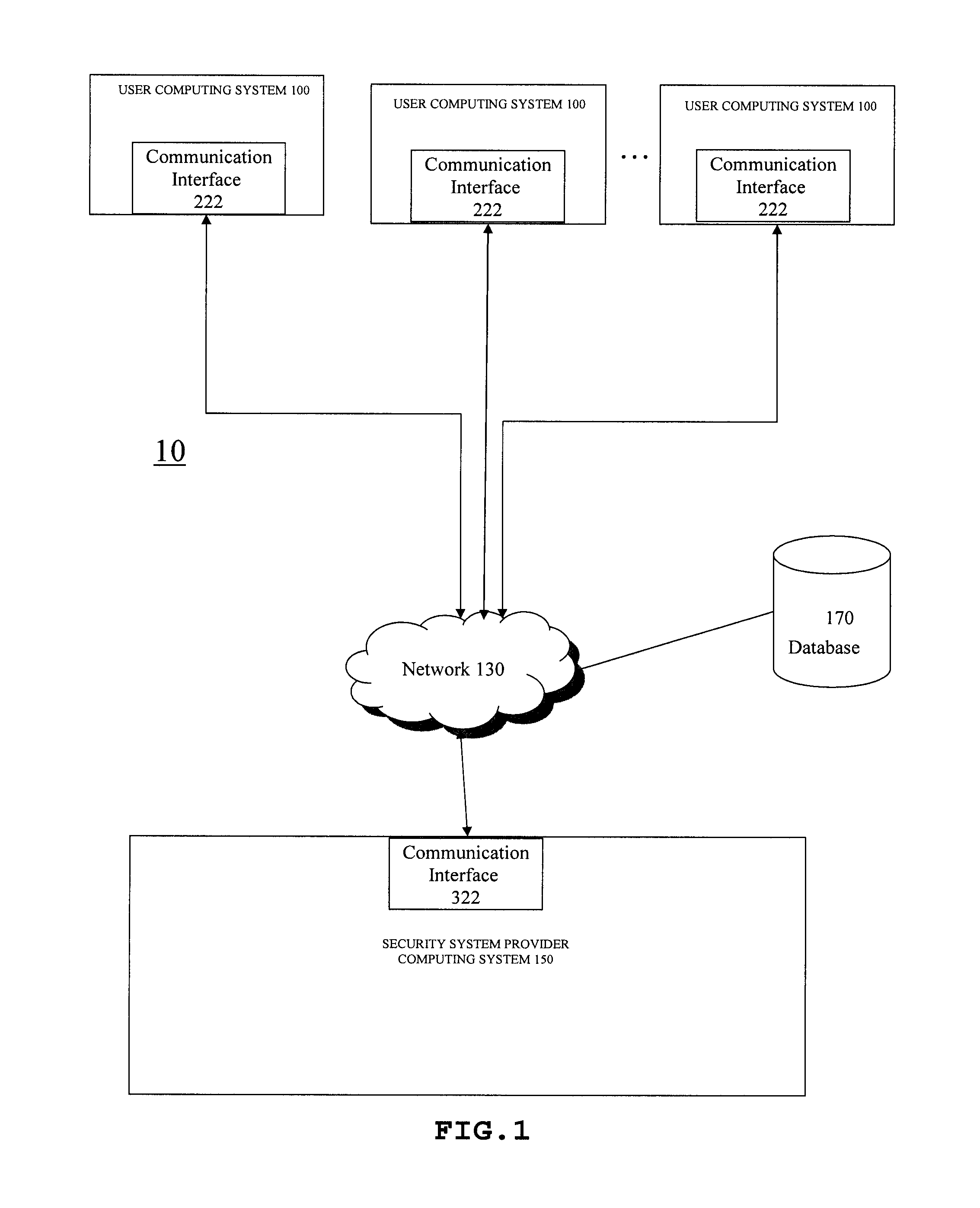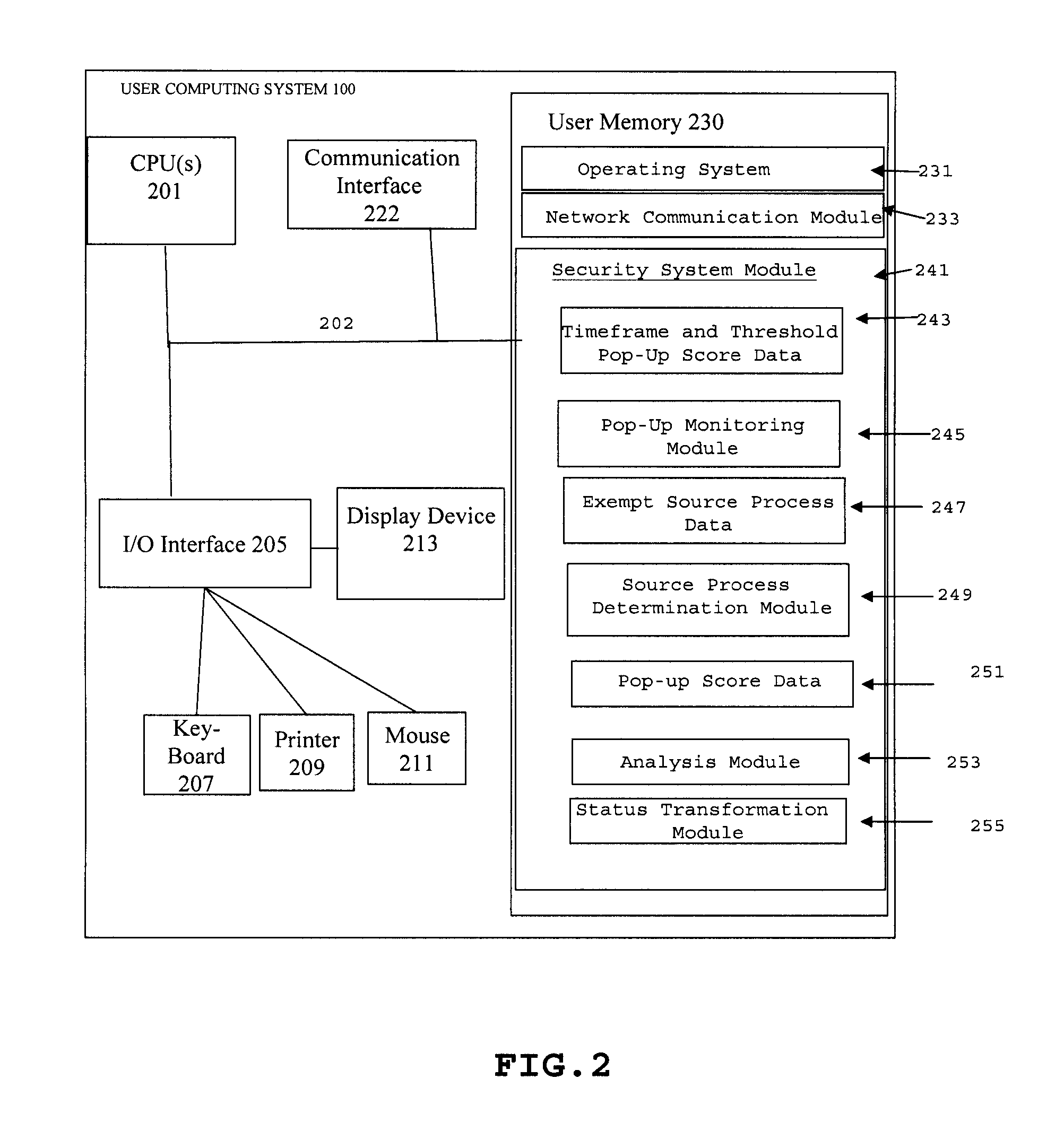Method and system for detecting rogue security software that displays frequent misleading warnings
a security software and warning technology, applied in the field of methods and systems for detecting rogue security software, can solve the problems of holding users hostage, affecting the ability to scare, and reducing the effectiveness of rogue security software,
- Summary
- Abstract
- Description
- Claims
- Application Information
AI Technical Summary
Benefits of technology
Problems solved by technology
Method used
Image
Examples
Embodiment Construction
[0024]Embodiments will now be discussed with reference to the accompanying FIG.s, which depict one or more exemplary embodiments. The following description includes reference to specific embodiments for illustrative purposes. However, the illustrative discussion below is not intended to be exhaustive or to limit the invention to the precise forms disclosed. Many modifications and variations are possible in view of the teachings below. The embodiments discussed below were chosen and described in order to explain the principles of the invention, and its practical applications, to thereby enable others skilled in the art to utilize the invention and various embodiments with various modifications as may be suited to the particular use contemplated. Therefore, embodiments may be embodied in many different forms than those shown and discussed herein and should not be construed as limited to the embodiments set forth herein, shown in the FIG.s, and / or described below.
[0025]According to one...
PUM
 Login to View More
Login to View More Abstract
Description
Claims
Application Information
 Login to View More
Login to View More - R&D
- Intellectual Property
- Life Sciences
- Materials
- Tech Scout
- Unparalleled Data Quality
- Higher Quality Content
- 60% Fewer Hallucinations
Browse by: Latest US Patents, China's latest patents, Technical Efficacy Thesaurus, Application Domain, Technology Topic, Popular Technical Reports.
© 2025 PatSnap. All rights reserved.Legal|Privacy policy|Modern Slavery Act Transparency Statement|Sitemap|About US| Contact US: help@patsnap.com



